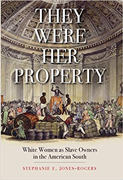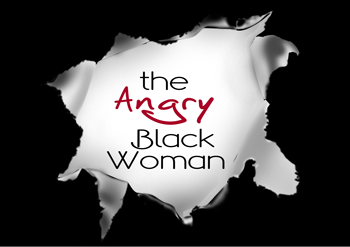the things we never knew . . .

it's complicated
I have a very complicated relationship with white women. I feel like I need to put that disclaimer out there before I talk about this book. Having grown up surrounded by them, loving them, wanting to be them, loathing them, and hating them at the same time, made for a very interesting childhood. Regardless of my internal conflict, I have spent a lifetime in white spaces, living and working with white women. I have spent a lifetime knowing how they operate, the nuances of their words and the microaggressions that they emit daily.
Just recently I watched 12 Years a Slave (yes, I was waaayyy late to that game) and it was . . . exhausting. Let me back up, I didn't watch the movie because I didn't want to see it, but because, in the throws of a really deep conversation with a childhood friend, it was pointed out that the hardest part of that movie was to see how 'comfortable' the white woman was in her behavior. She went on to talk about how, although history has told us white women have, historically, been voiceless, they were not as innocent as they have been portrayed. So, I had no interest in seeing something I had actually experienced my entire life. In real time.
Nevertheless, I finally watched it.
CHIIILLLLEEE let me tell you, I should have stuck with my original position. I wanted to bitch slap every single white woman I saw after watching this movie. Every. Single. One.
I saw the contempt in her eyes and the hatred in her heart. I saw that lack of solidarity when knowing that a woman was being repeatedly raped by her husband, a Black woman, how that brought out not a single bit of empathy, but rage. I saw, finally, how invested white women were in maintaining the status quo and using the bodies of Black women to keep that. Our lives, our bodies and our sheer existence means nothing if it, at any moment in time, conflicts with or interferes with their reality. Your reality. Another reason why I never believed in feminism. I knew who the end result would always benefit, and it wasn't me.
After reading this book, I am still processing it to be honest, but a lot of things seem, somewhat, clearer to me now. I never really understood the pathology of white women until reading this book. It showed me how invested they have been, and continue to be, in maintaining a system that, while it does not always hold them in the best light, it is better than it holds me. That seems to be the goal. Survival is the end game.
All of these feelings aside, I really do recommend this book for everyone. Stephanie Jones-Rogers has not only upended the romanticized notion of the plantation mistress and demure Southern white woman caught between ideology and conscience, but she also provides a powerful argument for the rationale of white women being instrumental in the continuation of slavery, the participation in the barbaric practices as active doers, and just how their adherence to these norms contributed to the economy and overall wealth of white women.
As usual, you can see her talk about what prompted her to write this book and what she discovered while doing so. Note - this is, perhaps, not the best video of her discussing this work, but while I look for a different version, this will give you some solid information. When you are done, buy the book!
